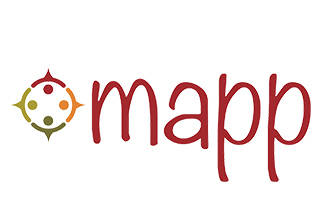In American culture, we view the start of the New Year as a time to make life changes, to reflect on the past year, to celebrate a new season in life, and a time to make changes to our behaviors, habits, and attitudes. Dry January is an annual tradition for many people. For some it’s a New Year’s resolution to drink less, while others claim it’s a way to “detox” from excessive drinking over the holidays. All believe that it’s going to be beneficial for their health and wellness. There are several studies that suggest the alcohol-free challenge reduces consumption of alcohol and improves health and wellness for months afterward.
The concept of a sobriety month at the start of the year was established in 2013 by the United Kingdom charity Alcohol Concern, which is now known as Alcohol Change UK. Dry January is the organization’s flagship campaign which has been changing the conversation about alcohol. The trend caught on around the globe, and now many people choose to take part in Dry January as a way to simply drink less or reset after a month or two of holiday partying.
Alcohol is part of many of our lives and all of us will have noticed its effects — if not the effects of our own drinking, then someone else’s at one time or the other. What’s true about us as individuals is equally true of our communities. We don’t have to believe that our community has extraordinary alcohol problems to think it would be worth us all taking time to evaluate our drinking.
Alcohol and substance use and disorders affect the wellness, which is the overall well-being, of individuals. Wellness incorporates the mental, emotional, physical, occupational, intellectual, and spiritual aspects of a person’s life. Each aspect of wellness can affect overall quality of life, so it is important to consider all aspects of health. This is especially important for people with mental health and substance use conditions because wellness directly relates to life quality and longevity.
According to the National Institute on Alcohol Abuse and Alcoholism, moderate alcohol consumption is one drink per day for women and up to two drinks per day for men. Binge drinking is defined as a pattern of drinking alcohol that brings alcohol concentration (BAC) to 0.08%. This pattern corresponds to consuming five or more drinks (male), or four or more drinks (female) in about two hours.
“With binge drinking, the blood alcohol level increases rapidly, and with increasing blood alcohol level, the risks of impairment increase,” said Trang M. Vu, MD, assistant professor of medicine at Icahn School of Medicine at Mount Sinai.
These impairments include reduced inhibitions, motor discoordination, and memory problems which can lead to car crashes, falls, risky or violent behavior, and more, she said.
If you are binge drinking or drinking heavily, talk to your medical provider and/or local alcohol and substance use resource before abruptly quitting for a month. Frequent binge drinking or heavy drinking can build up your tolerance to the effects of alcohol, and stopping can lead to alcohol withdrawal, which can range from shakes, anxiety, irritability, insomnia, nausea and vomiting to very severe symptoms like hallucinations, delirium, coma, seizures and death. If you require assistance with your Dry January plan, the Southern Kenai Peninsula area has several resources that can help you. Check out the local “Pathway to Treatment and Recovery” for details.
There are numerous health and wellness benefits of a Dry January and a sober approach to the New Year. Benefits include, but are not limited to: weight loss; better sports performance; better sleep; better sex; a longer life; better mood; financial savings; more radiant skin; decreased acne; improved liver function; lower blood pressure; improve insulin resistance; reduced blood levels of a protein linked to cancer; the ability to show up for life and feel more present; not waking up feeling bloated or hungover; joints feeling better; and a mentally clearer head.
Dry January can be an excellent time to launch into the New Year, reevaluate your relationship with alcohol, make changes that improve your health and wellness, and make 2021 the best year yet. Many people feel so good after experiencing a Dry January that they evaluate why they were drinking to begin with and may decide to quit drinking beyond January. Making a change with drinking can help provide a new perspective on how your health and wellness have improved.
Colleen Ackerman is an Alaska and national certified alcohol and substance use counselor who provides alcohol and substance use screenings, brief interventions, substance use counseling, substance use recovery and wellness education, and referrals to substance use specialty treatment for SVT Health and Wellness in Homer, Seldovia, and Anchor Point. Ms. Ackerman is actively engaged with MAPP’s Southern Kenai Peninsula Opioid Task Force, a community coalition that aims to find local solutions for substance misuse and addiction.
MAPP (Mobilizing for Action through Planning and Partnerships) is a local health improvement coalition with the vision of a proactive, resilient and innovative community.


